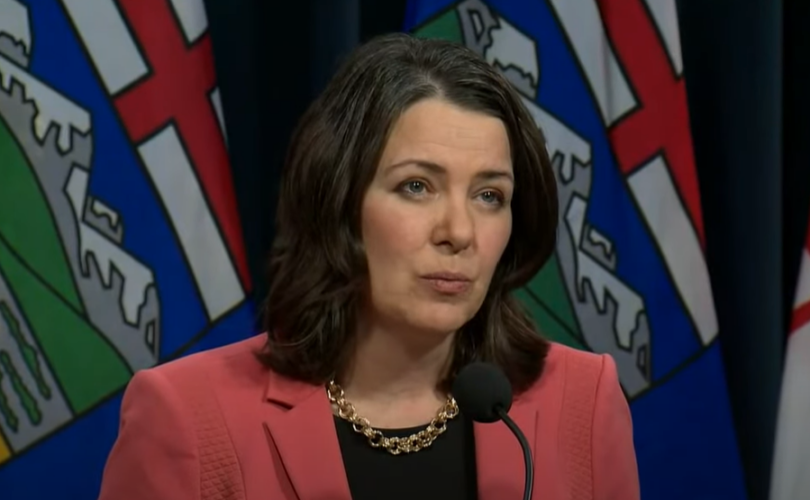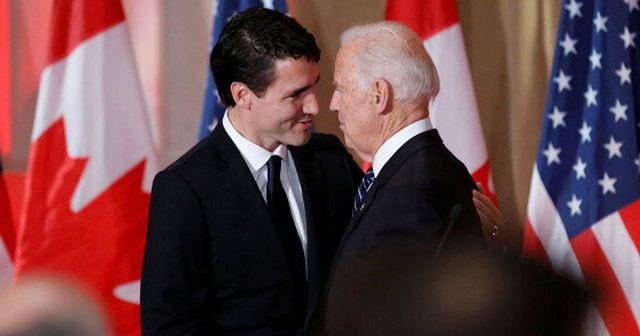Alberta
Update 4: Northwest Alberta wildfire (May 24 at 5:00 p.m.)

May 24, 2019
From Government of Alberta:
Nearly 400 firefighters, 28 helicopters and eight air tankers continue to battle northwest Alberta wildfires. Evacuees can sign up for financial support Sunday.
Current situation
- The Chuckegg Creek Wildfire is burning approximately three kilometres southwest of the Town of High Level in Mackenzie County.
- This out-of-control wildfire has grown to almost 100,000 hectares.
- Resources on the ground include about 261 wildland firefighters, 154 structural fighters and staff on the ground, supported by 28 helicopters, eight air tankers and 46 pieces of heavy equipment.
- Continuing dry and windy conditions in most of Alberta have increased the danger of forest fires.
- Evacuation centres have registered approximately 3,700 people as of May 24 at 2 p.m.
- A voluntary evacuation is in place for Paddle Prairie Metis Settlement and areas north of High Level.
- The province will provide one-time financial support to evacuees displaced by northwest wildfires.
- You may qualify for the evacuation payment if you were:
- living, working or vacationing in the affected area
- forced to leave due to an evacuation order
- paid for most of your costs to evacuate
- Albertans who qualify will receive $1,250 for each adult and $500 for each dependent child.
- Applications will open:
- Online – starting Sunday, May 26 (Interac e-transfers may take 24 hours to go through)
- In person at evacuation reception centres – starting Monday, May 27
- If you require assistance registering, call 310-4455
- Alberta Health Services evacuated 19 patients from the Manning Community Health Centre due to smoke from the wildfires.
- Detailed information is available on emergency.alberta.ca, which is updated frequently.
- Alberta Emergency Alerts has cancelled the High Level and Bushe River Reserve emergency alerts and have consolidated them into a larger Mackenzie County alert.
Reception centres
- Reception centres are open at:
- Slave Lake Legacy Centre (400 6 Avenue)
- High Prairie Gordon Buchanan Centre (5409 49 Street)
- Grande Prairie Regional College (10726 106 Avenue)
- Peace River Misery Mountain Ski Hill (10408 89 Street)
- La Crete Heritage Centre (25411 Township Road 1060, south of La Crete)
- Fort Vermilion Community Cultural Complex (5001 44 Avenue)
- Hay River Dene Wellness Centre (In K’atl’ Odeeche First Nation, 17 kilometres east of Hay River)
Highway closures
- Highway 35 remains closed between five kilometres and 30 kilometres south of High Level. Highway 697 and the La Crete Ferry is identified as a detour. La Crete Ferry is operational with wait times of approximately one hour.
- Highway 58 from High Level to approximately 70 kilometres from the junction with Range Road 45A remains closed.
Insurance information
- Evacuated residents should retain all their receipts for food purchases, accommodation and other related expenses to provide to their insurer for possible reimbursement.
- Most home and tenant’s insurance policies provide reasonable coverage for living expenses during an evacuation. Contact your insurance company for details.
- Albertans who cannot remember or reach their insurance provider, can contact the Insurance Bureau of Canada at 1-844-227-5422 or by email at [email protected]. Information to understand your fire insurance coverage is online at www.ibc.ca/ab/disaster/alberta-wildfire.
Air quality
- Alberta Health Services has issued a special air quality statement.
- Alberta Wildfire recommends checking FireSmoke.ca to find out where the smoke is coming from.
Health
- Mental health support is available by calling Alberta’s 24-hour Mental Health Help Line at 1-877-303-2642.
Pets and livestock
- Animal Control are collecting household pets that have been left behind. Pets will be moved to a safe and secure location outside of the Town of High Level. If you have left your household pet behind, please contact 780-926-2201.
- Mackenzie County has stock trailers to assist with livestock. transport. Visit www.highlevel.ca for more information.
Donations and volunteers
- The towns of High Level and Slave Lake are not accepting material donations and do not require volunteers at this time.
- The Town of Slave Lake has set up an online form for offers http://www.slavelake.ca/FormCenter/Other-27/High-Level-Evacuation-Volunteer-Sign-Up-159.
- Check the Mackenzie County Facebook page for an up-to-date list of donations needed and drop-off locations.
Canada Post
- Canada Post has suspended mail delivery services in the communities of High Level, Paddle Prairie Metis Settlement, Meander River, Chateh and Keg River.
- Mail will be held at the Edmonton depot until mail service resumes.
- Check the Canada Post website for updates.
Income Support, Alberta Supports and AISH
- Residents receiving benefits from the Assured Income for the Severely Handicapped (AISH) or the Income Support program by cheque rather than electronic deposit, and who are affected by the wildfire in High Level, can visit their nearest Alberta Supports Centres Alberta Supports [www.alberta.ca/alberta-supports.aspx] to pick up their cheque.
- If you are in La Crete, you can pick up your cheque at the local reception centre. If you receive your benefits via direct deposit, your payment will be deposited as usual.
- For information on child intervention and child care, residents may contact 1-800-638-0715.
- If persons with developmental disabilities, their families or contracted service providers need human, financial, or in-kind assistance to connect with loved ones, find accommodations or provide assistance to individuals receiving PDD supports, please contact the nearest Alberta Supports Centre for assistance. You can find a list of Alberta Supports Centres online Alberta Supports www.alberta.ca/alberta-supports.aspx or you can call the Alberta Supports contact Centre at 1-800-232-7215 provincewide between 7:30 a.m. and 8 p.m., Monday to Friday.
- For additional information on social benefits, affected individuals can contact Alberta Supports at www.alberta.ca/alberta-supports.aspx or call 1-877-644-9992, Monday to Friday from 7:30 a.m. to 8 p.m.
Health card, driver’s licences, ID cards, birth certificate
- To get a replacement Health Care Insurance Card at no cost, you can contact 780-427-1432 or toll free at 310-0000 and then 780-427-1432 when prompted. Your Alberta Personal Health Card can be mailed to a temporary address.
- If driver’s licences, ID cards, and/or birth certificates were left behind during the evacuation, replacement cards and certificates can be ordered free of charge at a registry agent. A list of registry locations can be found at https://www.alberta.ca/registry-agents.aspx
Other information
- Residents driving through the area should carry enough fuel as there may be shortages.
Public information
- You can call 310-4455 for more information.
Alberta
Alberta government should eliminate corporate welfare to generate benefits for Albertans

From the Fraser Institute
By Spencer Gudewill and Tegan Hill
Last November, Premier Danielle Smith announced that her government will give up to $1.8 billion in subsidies to Dow Chemicals, which plans to expand a petrochemical project northeast of Edmonton. In other words, $1.8 billion in corporate welfare.
And this is just one example of corporate welfare paid for by Albertans.
According to a recent study published by the Fraser Institute, from 2007 to 2021, the latest year of available data, the Alberta government spent $31.0 billion (inflation-adjusted) on subsidies (a.k.a. corporate welfare) to select firms and businesses, purportedly to help Albertans. And this number excludes other forms of government handouts such as loan guarantees, direct investment and regulatory or tax privileges for particular firms and industries. So the total cost of corporate welfare in Alberta is likely much higher.
Why should Albertans care?
First off, there’s little evidence that corporate welfare generates widespread economic growth or jobs. In fact, evidence suggests the contrary—that subsidies result in a net loss to the economy by shifting resources to less productive sectors or locations (what economists call the “substitution effect”) and/or by keeping businesses alive that are otherwise economically unviable (i.e. “zombie companies”). This misallocation of resources leads to a less efficient, less productive and less prosperous Alberta.
And there are other costs to corporate welfare.
For example, between 2007 and 2019 (the latest year of pre-COVID data), every year on average the Alberta government spent 35 cents (out of every dollar of business income tax revenue it collected) on corporate welfare. Given that workers bear the burden of more than half of any business income tax indirectly through lower wages, if the government reduced business income taxes rather than spend money on corporate welfare, workers could benefit.
Moreover, Premier Smith failed in last month’s provincial budget to provide promised personal income tax relief and create a lower tax bracket for incomes below $60,000 to provide $760 in annual savings for Albertans (on average). But in 2019, after adjusting for inflation, the Alberta government spent $2.4 billion on corporate welfare—equivalent to $1,034 per tax filer. Clearly, instead of subsidizing select businesses, the Smith government could have kept its promise to lower personal income taxes.
Finally, there’s the Heritage Fund, which the Alberta government created almost 50 years ago to save a share of the province’s resource wealth for the future.
In her 2024 budget, Premier Smith earmarked $2.0 billion for the Heritage Fund this fiscal year—almost the exact amount spent on corporate welfare each year (on average) between 2007 and 2019. Put another way, the Alberta government could save twice as much in the Heritage Fund in 2024/25 if it ended corporate welfare, which would help Premier Smith keep her promise to build up the Heritage Fund to between $250 billion and $400 billion by 2050.
By eliminating corporate welfare, the Smith government can create fiscal room to reduce personal and business income taxes, or save more in the Heritage Fund. Any of these options will benefit Albertans far more than wasteful billion-dollar subsidies to favoured firms.
Authors:
Alberta
Official statement from Premier Danielle Smith and Energy Minister Brian Jean on the start-up of the Trans Mountain Pipeline

-

 Addictions2 days ago
Addictions2 days agoCity of Toronto asks Trudeau gov’t to decriminalize hard drugs despite policy’s failure in BC
-

 Business2 days ago
Business2 days agoWhen politicians gamble, taxpayers lose
-

 Automotive2 days ago
Automotive2 days agoVehicle monitoring software could soon use ‘kill switch’ under the guise of ‘safety’
-

 Economy1 day ago
Economy1 day agoOttawa’s homebuilding plans might discourage much-needed business investment
-

 Alberta1 day ago
Alberta1 day agoAlberta government should eliminate corporate welfare to generate benefits for Albertans
-

 Bruce Dowbiggin1 day ago
Bruce Dowbiggin1 day agoIt Gets Late Early These Days: Time To Bounce Biden & Trudeau?
-

 National1 day ago
National1 day agoBritish Columbia quickly shoots down bill to ban men from competing in women’s sports
-

 Opinion1 day ago
Opinion1 day agoClimate Murder? Media Picks Up Novel Legal Theory Suggesting Big Oil Is Homicidal









